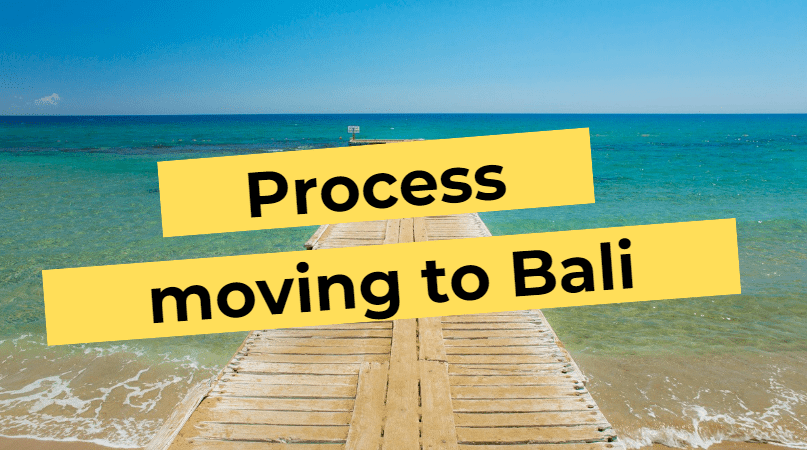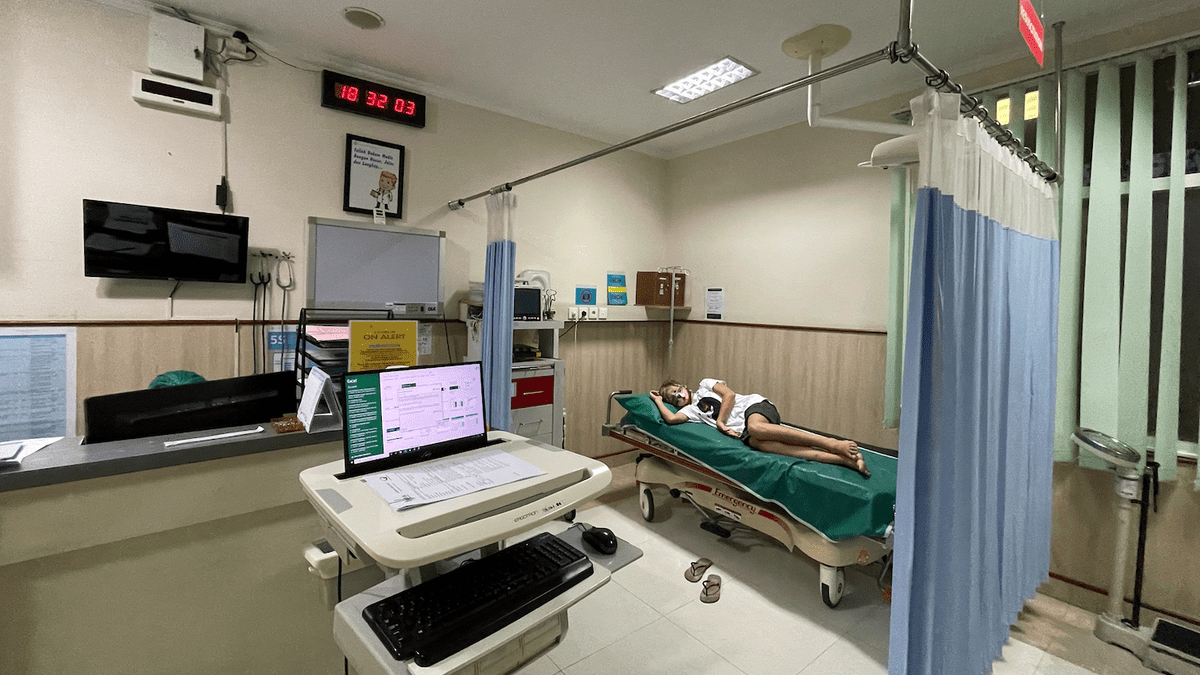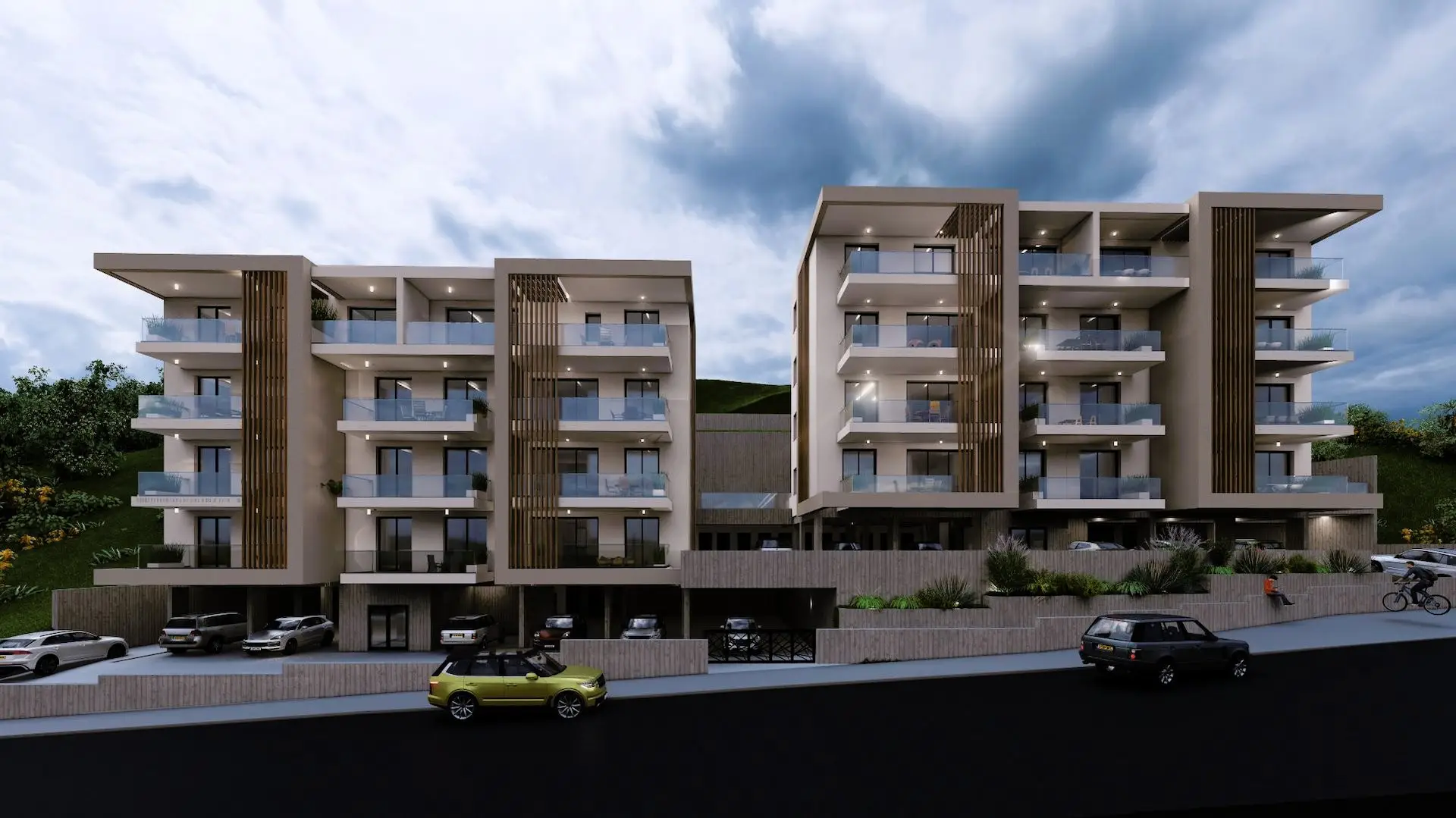
The process of moving to Bali


Real Estate Specialist
Bali is an island that many dream of calling home. This tropical paradise attracts people from all over the world with its snow-white beaches, rich cultural heritage and magnificent climate. However, moving to another country always involves certain difficulties and requires careful planning. In this article, we will cover all aspects of moving to Bali, from reasons and motives to We hope that this guide will help you make your move to Bali as comfortable and painless as possible.
Why Bali?
Bali is a place where everyone can find something for themselves. Some seek the peace and tranquility of the mountains and jungles of the central part of the island, while others prefer the exhilarating life of the resorts in the south. People are drawn here by the opportunity for surfing, yoga, diving, and the unique culture and spirituality of the locals.
Bali is also known for its favorable business environment. Many foreigners choose Bali as a place to start a business, from restaurants and spas to real estate agencies and consulting firms.
The island offers a rich and diverse culture that attracts tourists from all over the world. Balinese culture, art and religion are unique and different from most other places in the world, making Bali an ideal place to explore and learn.
Bali is also conveniently located in the center of Southeast Asia, making it an ideal base from which to explore the rest of the region.
After all, Bali is a place where you can meet people from all over the world, exchange ideas and learn something new. It's a place where you can enjoy life and find inspiration every day.
Moving process
Moving to Bali - is not just buying a ticket and booking a hotel. It is a complex process that requires careful planning and preparation. It is important to decide in advance on the type of visa you are going to get and prepare all the necessary documents.
- Decide on the type of visa: Your plans for Bali determine the type of visa you need. A vacation visa, work visa, socio-cultural visa, retiree visa all have different requirements and validity periods. Research all available options and choose the one that best suits your needs.
- Document gathering: Preparing documents for a visa is an important step that needs to be thought about in advance. Some documents, such as income or medical certificates, may take some time, so do not put this process off until the last minute.

- Planning your relocation date: Once you have decided on the type of visa and prepared all the necessary documents, you can start planning your relocation date. Keep in mind that the visa process can take some time, so it is recommended to apply as early as possible.
- Applying for a visa: Once all the documents have been prepared, you can apply for a visa. This can be done at the Indonesian Embassy in your country or online, depending on the type of visa.
- Planning your move: Once you have received your visa, you can start planning your move. This includes packing your belongings, choosing a transportation company, finding a accommodation in Bali and other important aspects.
Moving to a new country is a great and exciting adventure. With the right preparation and planning, your move to Bali will be a journey you will never forget.
Legal requirements for relocation
Important: Indonesia has strict immigration laws and ignoring these requirements can lead to serious problems.
For a long-term stay in Bali, you need to obtain the appropriate visa. There are several types of visas, including Socio-Cultural Visa, Business Visa, Retiree Visa and others. Each has its own requirements and restrictions.
- Socio-cultural visa allows you to stay in Bali for up to 60 days and can be extended up to 180 days. It is ideal for those who want to visit Bali as a tourist or visiting family and friends.
- Business visa is for those who plan to work or do business in Bali. This visa is valid for up to 1 year, but requires you to provide proof that you intend to work or run a business.
- Visa for pensioners is available for people over 55 years of age who do not plan to work in Bali. To obtain this type of visa, you will need to prove that you have sufficient funds to support yourself while in Bali.

It is important to note that visa requirements can change, so you should check the current information on the official website of the Indonesian embassy or consulate in your country before applying for a visa.
In addition to a visa, you may also need an international driver's license, health insurance, and other documents to move to Bali. Planning ahead and preparing all the necessary documents well in advance will help make your move to Bali as smooth as possible.
Relocation planning
It is important to remember that moving to another country is not just about moving your belongings from point A to point B. It is a whole process that involves many aspects, from preparing documents to adapting to a new culture.
- Developing an action plan. It can be a simple task list to help you remember important details. Your plan should include everything from figuring out your accommodations to determining your departure date.
- Budget Determination. Moving abroad can be expensive, so it is important to determine in advance how much you are willing to spend. Take into account all possible expenses, including transportation of belongings, renting or buying accommodation, visa costs, etc.
- Document preparation. Make sure you have all the necessary documents to move and live in Indonesia. This may include passport, visa, medical documents, education documents, etc.

- Accommodation Finder. This is probably one of the most important parts of planning. You need to find a place that is right for you. Consider different options, from renting an apartment to buying a house.
- Community Engagement. Seek information and advice from people who have already moved to Bali. They can share their experiences and offer helpful suggestions.
- Psychological preparation. Moving to another country can be emotionally challenging, so it is important to be prepared. Remember that it is normal to feel stressed or anxious before a big life change.
Moving to Bali is a great adventure, and with the right preparation and planning, it can be one of the most exciting and unforgettable experiences of your life.
Choosing accommodation in Bali
Choosing accommodation in Bali can be daunting, especially for those doing it for the first time. There are many options, from simple bungalows to luxury villas with a pool. Location, price, proximity to the sea or cultural attractions are all important factors to consider.
- When choosing a home, look at the safety of the neighborhood and proximity to necessary infrastructure such as stores, schools, hospitals, and transportation routes.
- If you are going to rent a home, always check the paperwork and read the contract before signing. Don't forget to check the terms of the lease, including utilities, maintenance and deposit.
- When purchasing It is advisable to consult a lawyer specializing in real estate in Indonesia. This will help you avoid legal problems in the future.
- Keep in mind that accommodation prices in Bali can vary greatly depending on the neighborhood. Large cities and popular tourist areas tend to have higher prices than lesser-known places.
- Consider staying in a guesthouse or hotel for the first time after your move. This will give you a chance to explore the island better and choose the area that best suits you for a long-term stay.
- If you are considering buying real estate, be aware that Indonesia has restrictions on land ownership for foreigners. You may need a local partner or company to buy land or a house.
Ultimately, choosing a Bali accommodation is a personal decision that should be based on your needs, preferences and budget. Whether you are renting or buying, it is important to do thorough research and get professional advice.
Financial aspects
Life in Bali may be cheaper than in many Western countries, but that does not mean it is free. The cost of living depends on many factors, including where you live, your lifestyle and personal needs.
- Budget planning is an important step when moving. Consider all possible expenses, including rent, food, transportation, medical services, entertainment, etc. Be prepared for some things to be cheaper and some things to be more expensive. For example, tropical fruits and local produce are usually cheaper than in the West, while imported goods can cost considerably more.
- To manage your finances in Bali, you can open a local bank account. This will simplify the process of transferring money and reduce currency conversion fees. Most banks in Bali offer accounts in US dollars and Indonesian rupiahs. When opening an account, be aware that many banks require a minimum deposit and may charge a monthly account maintenance fee.
- In addition to daily expenses, also consider other important financial aspects such as insurance (medical, automobile, etc.), taxes, property maintenance, etc.
- Don't forget that when buying real estate in Bali, apart from the cost of the property itself, you will have to consider other expenses such as taxes, agent fees and legal fees.
In general, financial planning is the key to a comfortable and hassle-free life in Bali. Be prepared that your expenses may be different from what you are used to, and always have some emergency funds in case of unexpected circumstances.
Health care in Bali
Medical services in Bali are varied and can range from simple clinics to modern medical centers. The quality of medical care in major cities and tourist areas is quite high, but services may be limited in more remote areas.
- When moving to Bali, it is important to consider that health insurance is compulsory. It should cover all basic medical services, including dental care, hospitalization and emergency care.
- It is important to choose an insurance company that has a good reputation and offers a wide range of cover. Some companies offer special packages for expats, including overseas medical cover.

- Try to always keep a copy of your insurance policy and your insurance company's contact information with you.
- Although Bali is a popular tourist destination, water and foodborne diseases are still common. Always ensure food and water hygiene.
- Make sure your immunization record is up to date, especially for hepatitis A and B, typhoid and tetanus vaccinations.
Remember that your health is the most important thing. Be attentive to your body and do not ignore medical help at the first signs of illness.
Cultural adaptation
Adapting to a new culture is not just learning a new language, it is also learning new social norms, customs and traditions. Balinese culture is a mixture of ancient traditions, religious rituals and modern lifestyles.
- Learning Indonesian is a great way to immerse yourself in the local culture. In addition to the basics of the language, you will also learn about Balinese customs, traditions and lifestyle.
- Be prepared for culture shock. Remember that accepting and understanding a new culture takes time. Don't be afraid to ask questions and learn new things.
- Respect local traditions and customs. Balinese people are very spiritual people and their religious rituals and traditions play an important role in everyday life.
- Try to get involved in local life. Visiting local markets, participating in local festivals and events, and interacting with locals will all help you better understand and embrace Balinese culture.
In the next section, we will discuss educational opportunities in Bali and give tips on how to fit into the local community.
Schools and education
If you are moving to Bali with children, it will certainly be important for you to provide them with a quality education. There are many international schools in Bali that offer English language programs for students of different ages.
- International schools in Bali offer a variety of academic programs including International Baccalaureate (IB), British and American programs. These schools provide a high level of education comparable to the best schools in the world.
- When choosing a school, consider its location, size, curriculum and extracurricular activities. Some schools offer unique programs such as Balinese language and culture, environmental education, and arts and sports programs.
- Bali also offers opportunities for homeschooling or small group learning, which can be ideal for families looking for a more personalized approach to education.
- Don't forget that education is not just about textbooks and classrooms. Bali is an amazing place to learn about life, explore nature and understand other cultures.
Moving to a new country can be difficult for children, but the right school can help them adapt and thrive in their new environment.
Moving to Bali is a unique and exciting experience that can lead you to new opportunities and adventures. However, it also requires careful planning and preparation. Our company specializes in the selection of real estate in Bali. We offer a wide range of services, including assistance in selecting and real estate purchase.
There are socio-cultural visa, business visa, retirement visa and tourist visa. Each type of visa has its own requirements and restrictions.
You need a passport, completed application form, photo, proof of income or invitation, medical certificate and other documents depending on the type of visa.
Popular areas include Seminyak, Ubud, Changu and Nusa Dua, each with its own advantages depending on preference.
The cost of living depends on lifestyle, but on average includes rent, food, transportation, medical and entertainment.
Bali has modern medical centers in major cities and tourist areas, but services may be limited in remote areas.
Learning Indonesian, understanding local customs and being part of the community will help you adapt more quickly to life in Bali.
What visas are available for moving to Bali?
There are socio-cultural visa, business visa, retirement visa and tourist visa. Each type of visa has its own requirements and restrictions.
What documents are required to obtain a visa?
You need a passport, completed application form, photo, proof of income or invitation, medical certificate and other documents depending on the type of visa.
What is the best neighborhood in Bali to live in?
Popular areas include Seminyak, Ubud, Changu and Nusa Dua, each with its own advantages depending on preference.
How much does it cost to live in Bali?
The cost of living depends on lifestyle, but on average includes rent, food, transportation, medical and entertainment.
What medical services are available in Bali?
Bali has modern medical centers in major cities and tourist areas, but services may be limited in remote areas.
What is the best way to adapt to a new culture in Bali?
Learning Indonesian, understanding local customs and being part of the community will help you adapt more quickly to life in Bali.




























